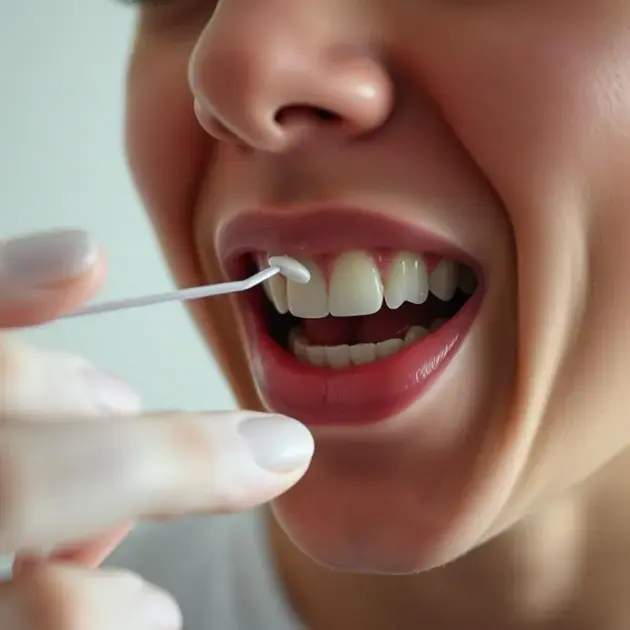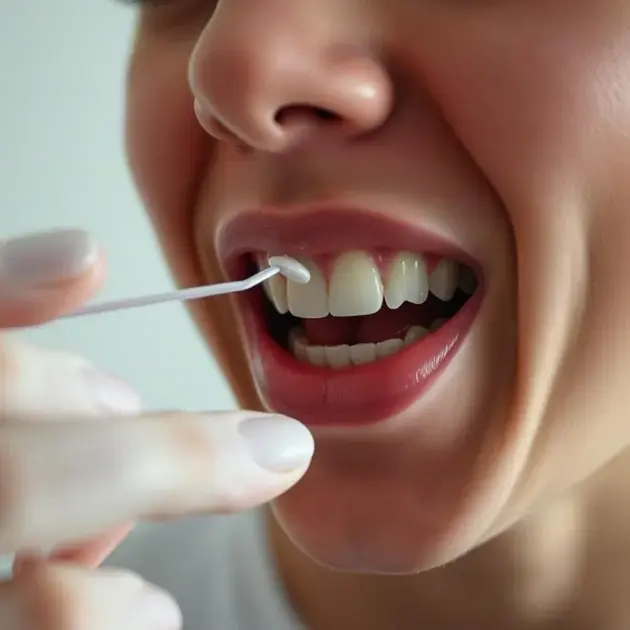Maintaining optimal dental health involves several routines, but one often debated is how often you should floss. Dental experts agree that flossing plays a crucial role in the maintenance of healthy gums and teeth, effectively removing plaque and food particles that your toothbrush can’t reach. Understanding the best practices for flossing can make a significant difference in your oral hygiene.
Recent studies suggest that flossing daily is essential for preventing gum disease and reducing incidences of cavities. It helps dislodge food trapped between teeth, which if left unchecked, can lead to tartar build-up, gum disease, and tooth decay. Besides its health benefits, flossing daily promotes fresher breath and can lead to longer-lasting teeth, highlighting its importance in your daily routine.

Proper Flossing Techniques for Optimal Dental Health
Flossing is an essential part of maintaining optimal dental health. By removing plaque and food particles from between your teeth, flossing helps prevent cavities, gum disease, and bad breath. To ensure you are flossing correctly, follow these steps:
Step 1: Choose the Right Type of Floss
There are various types of dental floss available, including waxed, unwaxed, flavored, and tape. Choose a floss that works best for you and is gentle on your gums.
Step 2: Break off a Piece of Floss
Break off about 18 inches of floss and wind most of it around one of your middle fingers. Wind the remaining floss around the same finger on the opposite hand.
Step 3: Floss Between Your Teeth
Gently slide the floss between your teeth using a back-and-forth motion. Curve the floss around each tooth in a C shape and slide it under the gumline to remove plaque and debris.
Step 4: Use a Fresh Section of Floss
As you move from tooth to tooth, use a fresh section of floss each time to avoid spreading bacteria. Make sure to floss both the front and back of each tooth.
Step 5: Rinse Your Mouth
After flossing, rinse your mouth with water or mouthwash to remove any loosened debris. Regular flossing, along with brushing and regular dental check-ups, is key to optimal dental health.
The Importance of Daily Flossing for Preventing Gum Disease
Daily flossing plays a crucial role in preventing gum disease, also known as periodontal disease. Gum disease occurs when plaque buildup leads to inflammation and infection of the gums. Here’s why daily flossing is vital:
Prevents Plaque Accumulation
Regular flossing helps remove plaque from between teeth and along the gumline, where toothbrushes may not reach effectively. This reduces the risk of plaque hardening into tartar, which can only be removed by a dentist.
Reduces Risk of Gum Inflammation
By removing plaque and debris, flossing helps prevent gum inflammation, a common early sign of gum disease. Healthy gums are essential for overall oral health and can prevent serious dental problems down the road.
Preserves Bone and Tooth Structure
Advanced gum disease can lead to bone loss and tooth decay. Daily flossing can help preserve the bone and tooth structure by keeping the gums healthy and free from infection.
Enhances Overall Health
Research has shown a link between gum disease and systemic health conditions such as heart disease and diabetes. By maintaining good oral hygiene, including daily flossing, you not only protect your teeth and gums but also your overall health.
Promotes Fresh Breath
Flossing removes food particles and bacteria that can cause bad breath. By flossing daily, you can enjoy fresher breath and a cleaner, healthier mouth.
Benefits of Flossing Daily for Fresher Breath and Healthier Teeth
In addition to preventing gum disease, daily flossing offers a range of benefits for fresher breath and healthier teeth. Here are some advantages of incorporating flossing into your daily oral hygiene routine:
Removes Plaque and Tartar
Flossing helps remove plaque between teeth, preventing it from hardening into tartar. Tartar buildup not only contributes to gum disease but also causes teeth discoloration and decay.
Prevents Cavities
Effective flossing removes food particles and bacteria from areas where toothbrushes cannot reach, reducing the risk of cavities between teeth. By flossing daily, you can maintain strong and cavity-free teeth.
Improves Gum Health
Healthy gums are essential for overall oral health. Daily flossing stimulates the gums, increases blood flow, and promotes gum tissue strength. This leads to healthier gums and a reduced risk of gum disease.
Enhances Overall Oral Hygiene
Regular flossing, along with brushing and dental check-ups, is key to maintaining optimal oral hygiene. By flossing daily, you can achieve a cleaner mouth, fresher breath, and healthier teeth for years to come.
Promotes a Brighter Smile
By removing plaque and debris, flossing helps keep teeth clean and bright. A brighter smile not only boosts confidence but also indicates good oral hygiene practices.

How to Choose the Right Type of Floss for Your Oral Health
Choosing the right type of floss is essential for maintaining good oral health. With various options available in the market, it can be overwhelming to decide on the most suitable one for your needs. When selecting floss, consider factors such as thickness, texture, and flavor. Thicker floss is recommended for individuals with wider gaps between their teeth, while thinner floss is ideal for those with tight spaces.
Another consideration when choosing floss is the material it is made of. Options include nylon, PTFE, and natural materials like silk. Nylon floss is affordable and widely available, while PTFE floss is more durable and slides easily between teeth. Natural floss materials are biodegradable and suitable for individuals looking for eco-friendly options.
Flavored floss can make the flossing experience more enjoyable, encouraging individuals to floss regularly. Common flavors include mint, cinnamon, and bubble gum. However, if you have sensitive gums or allergies, opt for unflavored floss to avoid potential irritation.
Ultimately, the best type of floss is one that you will use consistently as part of your oral hygiene routine. Experiment with different types of floss to determine which one you find most comfortable and effective for keeping your teeth and gums healthy.
When in doubt, consult with your dentist or dental hygienist for recommendations on the right type of floss based on your specific oral health needs.
The Link Between Regular Flossing and Overall Well-Being
Regular flossing is not just essential for maintaining good oral health; it also has a significant impact on your overall well-being. Flossing helps remove plaque and food particles from between teeth and along the gumline, reducing the risk of cavities, gum disease, and bad breath. By incorporating flossing into your daily routine, you can prevent oral health issues that may lead to more serious health problems.
Poor oral hygiene has been linked to various systemic conditions, including heart disease, diabetes, and respiratory infections. When bacteria from plaque enter the bloodstream through inflamed gums, it can contribute to inflammation in other parts of the body, increasing the risk of chronic diseases.
In addition to physical health benefits, regular flossing can also have a positive impact on mental well-being. Maintaining good oral hygiene and having a healthy smile can boost self-confidence and overall quality of life. The act of flossing itself can be a meditative practice, promoting mindfulness and relaxation.
Make flossing a priority in your daily routine to reap the rewards of improved oral health and overall well-being. Remember that consistency is key, and even a few minutes dedicated to flossing each day can make a significant difference in your health and happiness.
Tips for Making Flossing a Habit for Improved Dental Hygiene
Developing a flossing habit is crucial for achieving optimal dental hygiene and preventing oral health issues. Here are some tips to help you make flossing a regular part of your daily routine:
1. Set Reminders:
Use alarms, sticky notes, or smartphone apps to remind yourself to floss daily. Consistency is key in forming a habit, so establish a flossing schedule that works best for you.
2. Find the Right Flossing Technique:
Proper flossing technique is essential for effectively removing plaque and debris from between teeth. Ask your dentist or dental hygienist to demonstrate the correct flossing method to ensure you are getting the most benefit from your flossing routine.
3. Make it Enjoyable:
Choose a floss that you like using, whether it’s flavored, waxed, or unwaxed. Pairing flossing with a favorite activity, such as watching TV or listening to music, can make it more enjoyable and encourage consistency.
4. Celebrate Small Victories:
Each time you successfully floss, acknowledge the achievement and give yourself a pat on the back. Positive reinforcement can help reinforce the habit and motivate you to continue flossing regularly.
5. Track Your Progress:
Keep a flossing journal or use a habit-tracking app to monitor your consistency. Seeing your flossing streaks can be a visual reminder of your commitment to oral health and encourage you to stay on track.
By following these tips and making flossing a priority in your daily routine, you can improve your dental hygiene, maintain a healthy smile, and contribute to your overall well-being.
Conclusion
Choosing the right type of floss is crucial for maintaining good oral health. Factors such as thickness, texture, and flavor play a significant role in selecting the most suitable floss for your needs. Whether it’s thicker floss for wider gaps or thinner floss for tight spaces, the best floss is one that fits seamlessly into your oral hygiene routine.
The link between regular flossing and overall well-being emphasizes the importance of flossing beyond just oral health benefits. By preventing cavities, gum disease, and bad breath, regular flossing can contribute to a healthier body overall. Good oral hygiene has been linked to systemic conditions, highlighting the interconnectedness of oral and overall health.
Developing a flossing habit with the right technique and making it an enjoyable part of your routine can lead to improved dental hygiene and a healthier smile. Setting reminders, celebrating small victories, and tracking progress can help make flossing a consistent habit, promoting not just oral health but also mental well-being.
